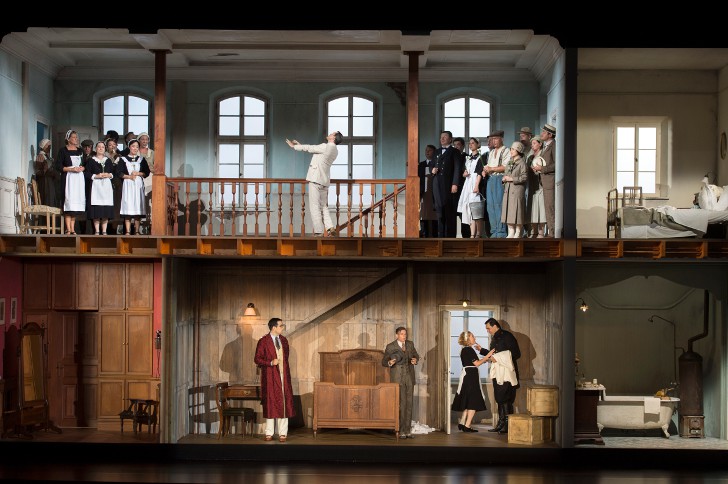Music festivals had been held in Salzburg at irregular intervals since 1887, but were discontinued in 1910. The International Mozarteum Foundation planned a festival for 1914 but had to cancel it because of the outbreak of the First World War. Following the end of the war in 1918, five cultural leaders decided to revive the tradition of holding music festivals in Salzburg. They were theater and film director Max Reinhardt, conductor Franz Schalk, painter and set designer Alfred Roller, composer Richard Strauss, and playwright and librettist Hugo von Hofmannstahl. They are considered the founders of the Salzburg Festival.
The first Salzburg Festival opened on August 22, 1920 with Reinhard’s production of Hofmannstahl’s play Jedermann (Everyman) starring famous Albanian stage actor Alexander Moissi. The performance took place right on the steps of Salzburg Cathedral. The play has been performed almost every at the festival ever since, with only a few exceptions. In 1921, the festival featured performances of chamber music and orchestra works for the first time. The first operatic production was included in the festival program in 1922. It was Don Giovanni by Wolfang Amadeus Mozart conducted by Richard Strauss.
The popularity of the festival grew steadily during the years from 1920 to 1937. It featured famed conductors such as Bruno Walter and Arturo Toscanini. However, the prestige of the Salzburg Festival suffered a major blow in 1938, when Austria was annexed by Nazi Germany (the so-called Anschluss). Toscanini refused to participate in protest, and many artists of Jewish descent had to emigrate because of anti-Jewish laws in Nazi Germany. Nevertheless, the festival wasn’t canceled until 1944. The cancellation was ordered by Joseph Goebbels in response to the 20 July plot.
The Salzburg Festival was reinstated immediately after the acceptance by the Allies of Nazi Germany’s surrender. It slowly regained its prominence and is now considered to be one of the world’s largest and most influential summer opera festivals as well as a major venue for drama, opera and classical music presentation. The festival operates in over a dozen venues throughout Salzburg and attracts more than 250,000 spectators every year. It features artists from approximately 70 countries, about half of which are countries outside Europe.

Photo © Salzburger Festspiele / Ruth Walz




